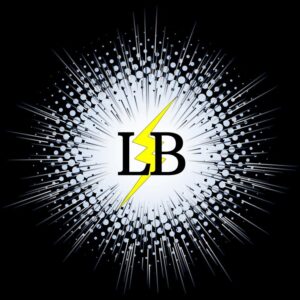Courtesy of LB4D News
A resolution to the longstanding controversy over the ancient indigenous site known as Puvungna has finally been found.
The Juaneño Band of Mission Indians, Acjachemen Nation – Belardes and the California Cultural Resources Preservation Alliance have announced a legal settlement with California State University, Long Beach (CSULB) that provides “permanent protection to Puvungna”. Puvungna is a multi-acre, listed historical and cultural site located on the CSULB campus.
The legal settlement is the end of the lawsuit over CSULB’s 2019 dumping of debris from the construction of the new Parkside North student dorms on Atherton Street. The Indigenous People and their allies argued that the university acted improperly when it dumped the 6,400 cubic yards of construction dirt and debris on Puvungna.
The settlement requires CSULB to file and record a restrictive covenant on the land. The Declaration of Restrictive Covenant will be attached to the land binding the university and any future owners of the land to its restrictions. The settlement agreement calls for the Declaration of Restrictive Covenant to be filed within 10 days of approval of the settlement agreement by the court.
Restrictions include a prohibition on the university from developing or damaging the land. Other restrictions included are prohibitions on:
- constructing temporary or permanent structures or improvements (such as parking lots, classrooms, or retail buildings);
- depositing construction debris or materials;
- installing landscaping other than certain native plants;
- applying Roundup or similar pesticides to the land;
- storing or staging construction equipment;
- parking vehicles;
- operating motorcycles, dirt bikes or mountain bikes;
- operating heavy machinery;
- or installing improvements that restrict or prohibit access to California Native American Tribes and affiliated groups using the land for culture-related activities.
The settlement agreement also includes allowing tribal groups to use Puvungna for their ongoing traditional activities and access to perform ongoing maintenance, health, and safety issues and for addressing the construction debris that were dumped on Puvungna.
The agreement also requires the CSU System to establish, eventually, a conservation easement over the site. That easement would supplant the restrictive covenant and would shift care of the land to a manager agreed upon by the parties to the settlement.
Finally, the settlement agreement requires CSULB to pay $180,000 in legal fees to the attorneys of the Indigenous People in the court case.
Rebecca Robles the Culture Bearer – Juaneño Band of Mission Indians, Acjachemen Nation released this statement:
“We look forward to the restoration of our sacred Puvungna. This is a new era. It is a time of healing, a time of social justice for Acjachemen and Tongva people, cooperation among Tribal relatives and our allies. We look to the future to continue our culture and sacred traditions and fulfill our promises to the coming generations.”
The settlement agreement appears to be the final chapter in the long battle of the Indigenous People over the Puvungna lands. The construction dumping lawsuit came just as the Indigenous and African American “land back” movement started to become national news.
The first “Indian Wars” over Puvungna started as CSULB’s desire to build a mall on the land in the late 20th Century.
Round two of the battle started with the latest CSULB 10-year Master Plan that had CSULB hiring a consultant for the proposed development of Puvungna.
Then came the construction dumping on Puvungna after CSULB claims of “consultation” with some CSULB Indigenous faculty members. Protests erupted, including in front of CSULB President Jane Close Conoley’s home.
The lawsuit followed as CSULB continued missteps, including at one point referring to Puvungna as “our land”.
In an acknowledgment that the university had been on the wrong side of history, as the settlement negotiations in the lawsuit began, Dr. Conoley released a video offering to protect Puvungna for the next 10 years. That offer was rejected by the Indigenous People.
Next the California Native American Heritage Commission voted to start an investigation into the Puvungna construction dumping.
On the wrong side of history and with a long record of cultural missteps, CSULB it appears is finally ready to make things right.
For more information see the following:
- CSULB Court Settlement Agreement
- State Commission votes to investigate CSULB Puvungna dumping and file amicus brief against the university
- Puvungna alliance grows and sends an appeal to CSU leaders and Gov. Newsom
- CSU Chancellor Castro corrected by California NativeAmerican Heritage Commission attorney over mischaracterization about CSULB’s Puvungna soil dumping
- CSULB’s Puvungna contradictions Dr. Conoley and “our” Native Americans
- CSULB’s white Executive Team is in a no-win 2020 Puvungna land battle
- CSULB and Puvungna in the news



















